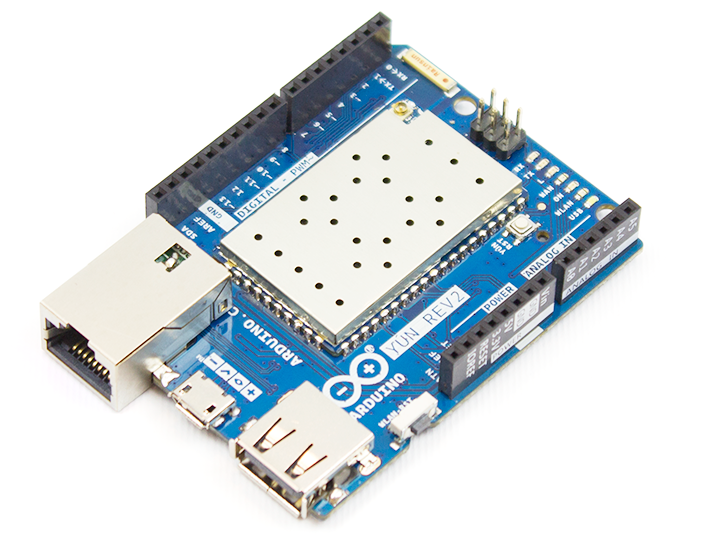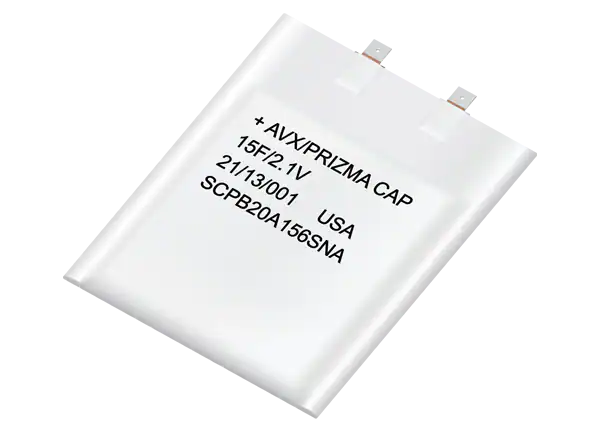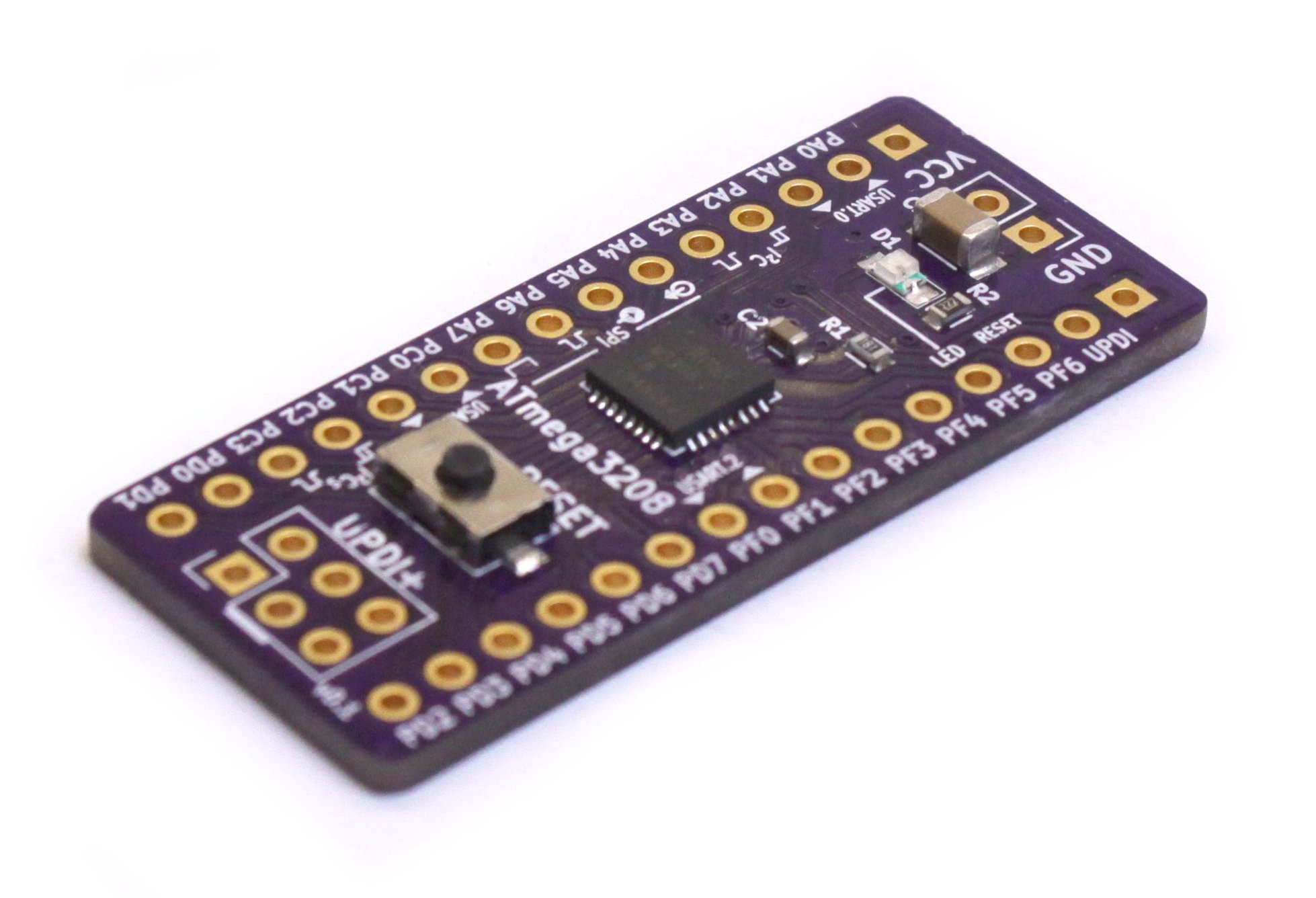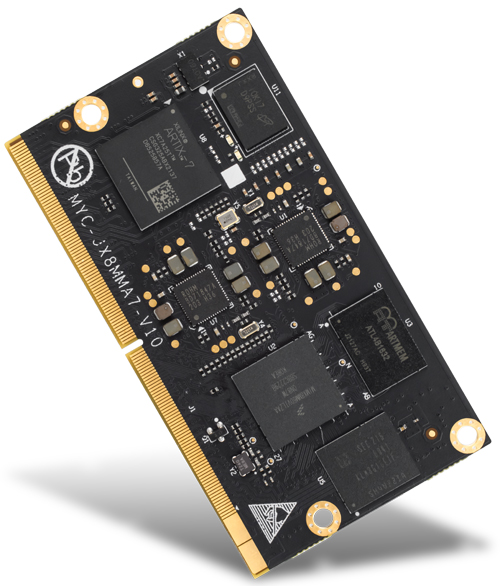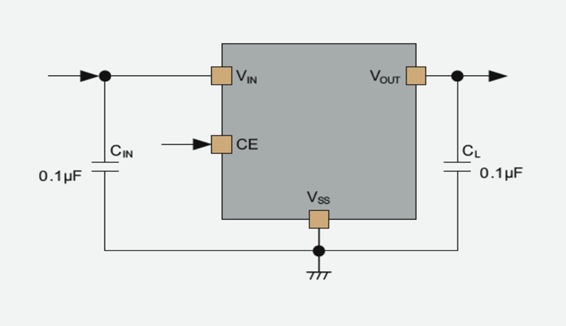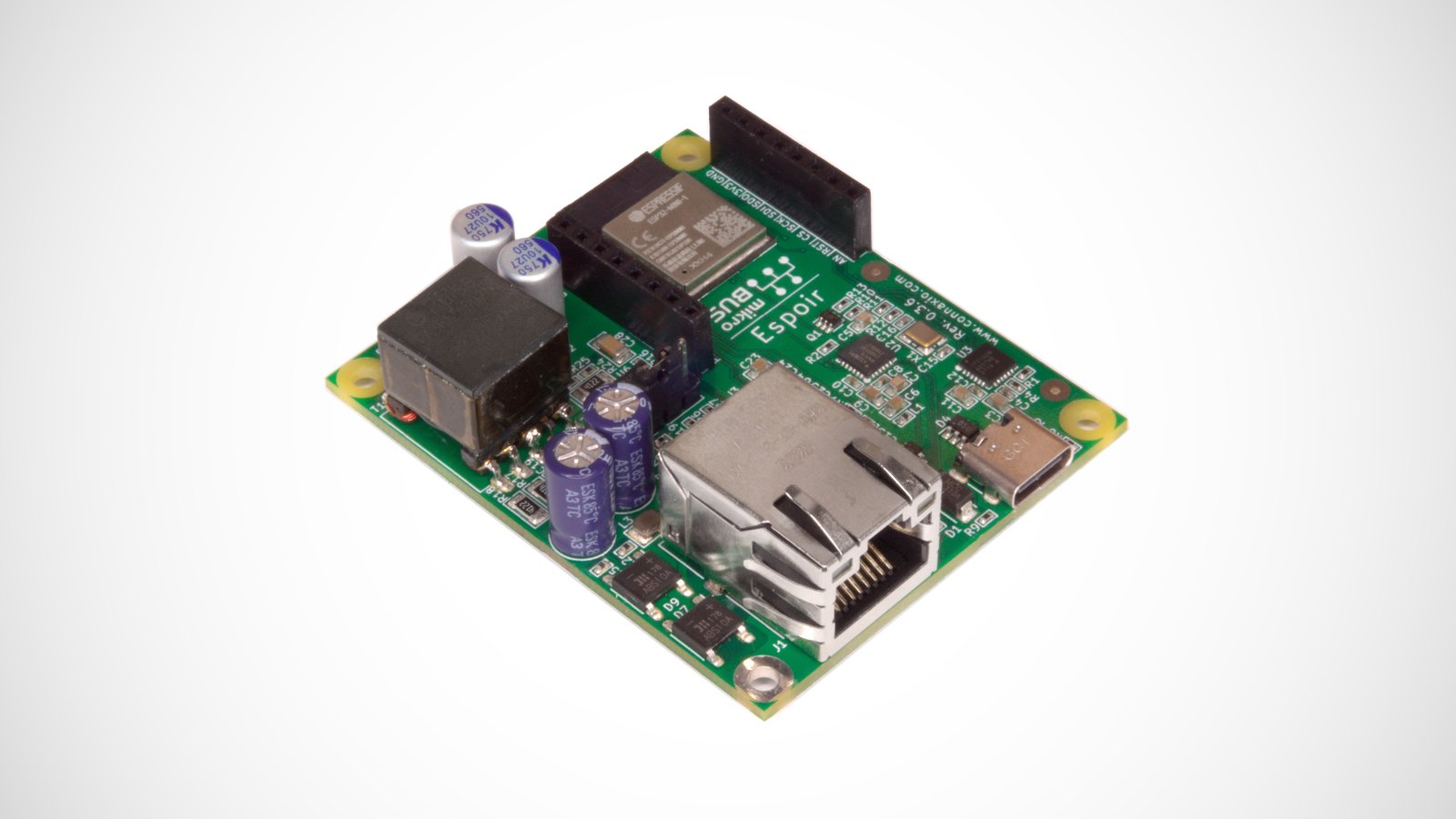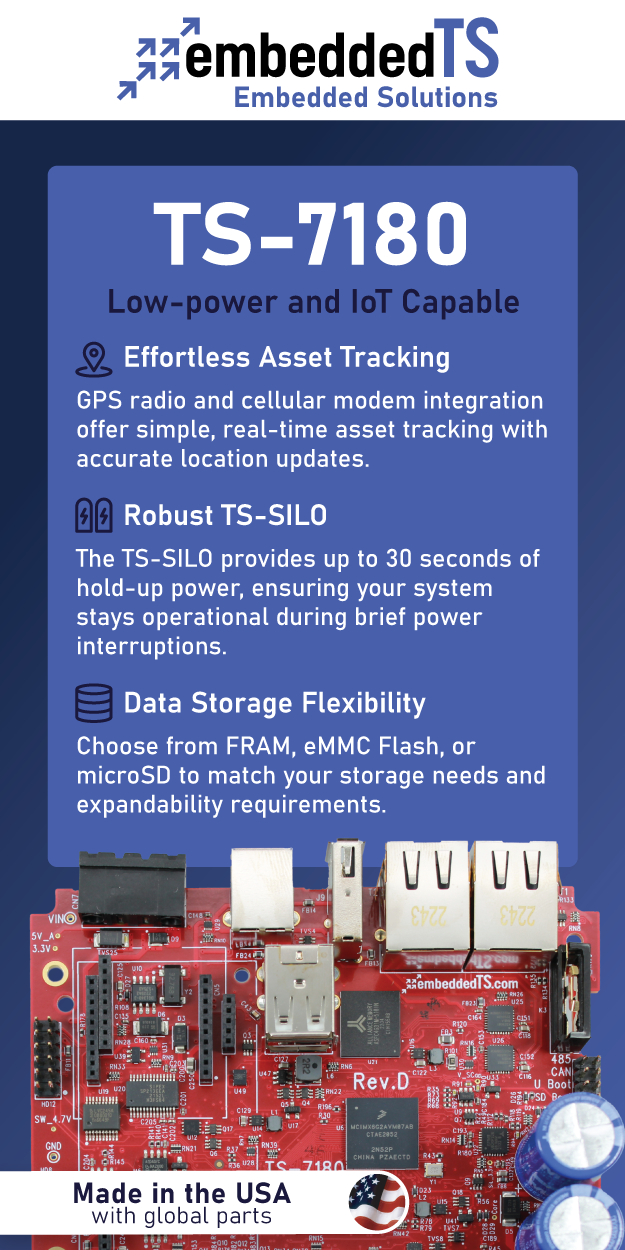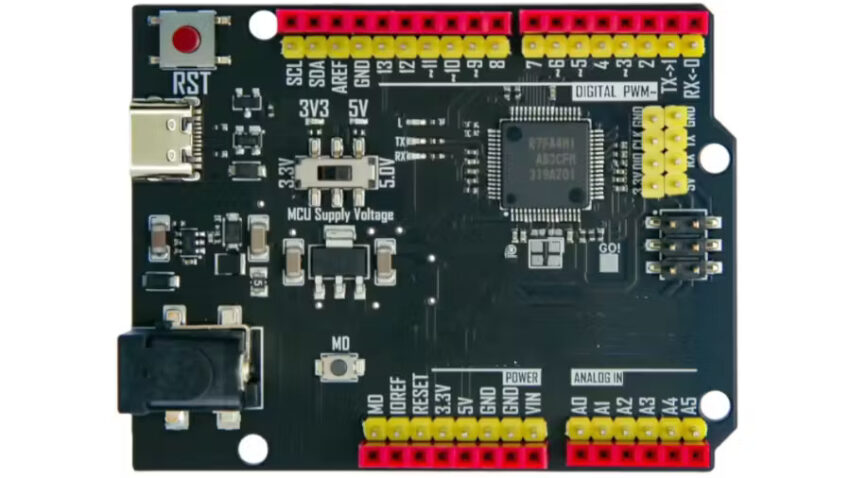
Maker Go, a Chinese hobbyist electronics specialist, has introduced a cost-effective alternative to the Arduino UNO R4 Minima, built around the same Renesas RA4M1 microcontroller. This clone significantly reduces the cost of entry, with an initial price of under $1 for a limited time.
The Arduino UNO R4 Minima was launched as an upgrade to the classic 8-bit AVR-based UNO R3, offering a major performance improvement. The Renesas RA4M1 at its core is a 32-bit Arm Cortex-M4 microcontroller running at 48MHz, which is three times faster than the previous UNO R3 model. Maker Go’s version uses this same chip but offers enhanced specifications, including a significant increase in memory.
“The RA4M1 core board uses the Renesas RA4M1 (Arm Cortex-M4) microcontroller with a speed of 48MHz, which is three times higher than the [Arduino UNO] R3,” Maker Go writes of its design. “SRAM [Static RAM] is increased from 2kB in [UNO] R3 to 32kB, and flash is increased from 32kB to 256kB to adapt to more complex program applications. Compatible with the official [Arduino UNO R4] Minima development and learning board.”
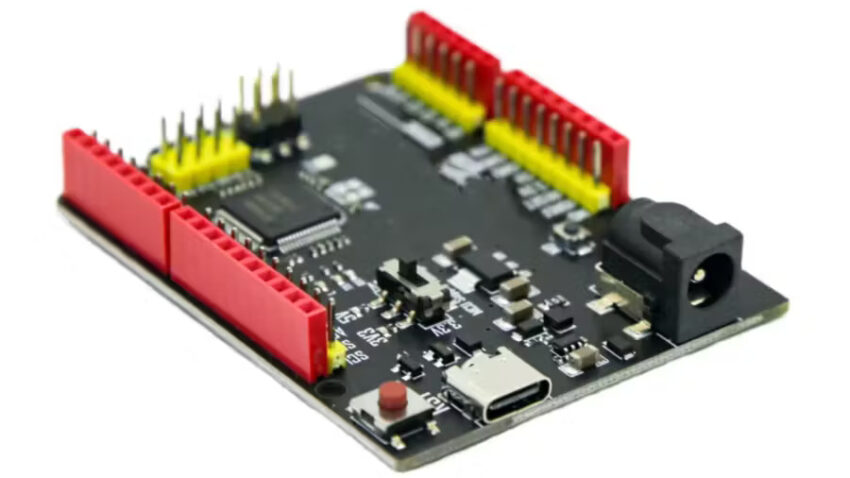
While functionally identical to the official Arduino board, Maker Go’s design includes a few practical differences. One notable feature is the option to install both male and female headers simultaneously, with a physical switch to toggle between 5V and 3.3V logic levels. This flexibility makes it compatible with a wider range of projects and hardware. Additionally, the board ships with its headers unpopulated, allowing for customization depending on the user’s needs.
Maker Go’s clone is priced at a standard $7.76, which significantly undercuts the official Arduino UNO R4 Minima. However, for a limited time, Maker Go is offering a “welcome deal,” allowing early buyers to purchase the board for just $0.99. This makes it the most affordable option to experiment with the powerful Renesas RA4M1 chip.
The Maker Go Arduino UNO R4 Minima clone is available for purchase on their AliExpress store, offering a budget-friendly entry point for hobbyists and developers looking to explore 32-bit microcontroller applications.




